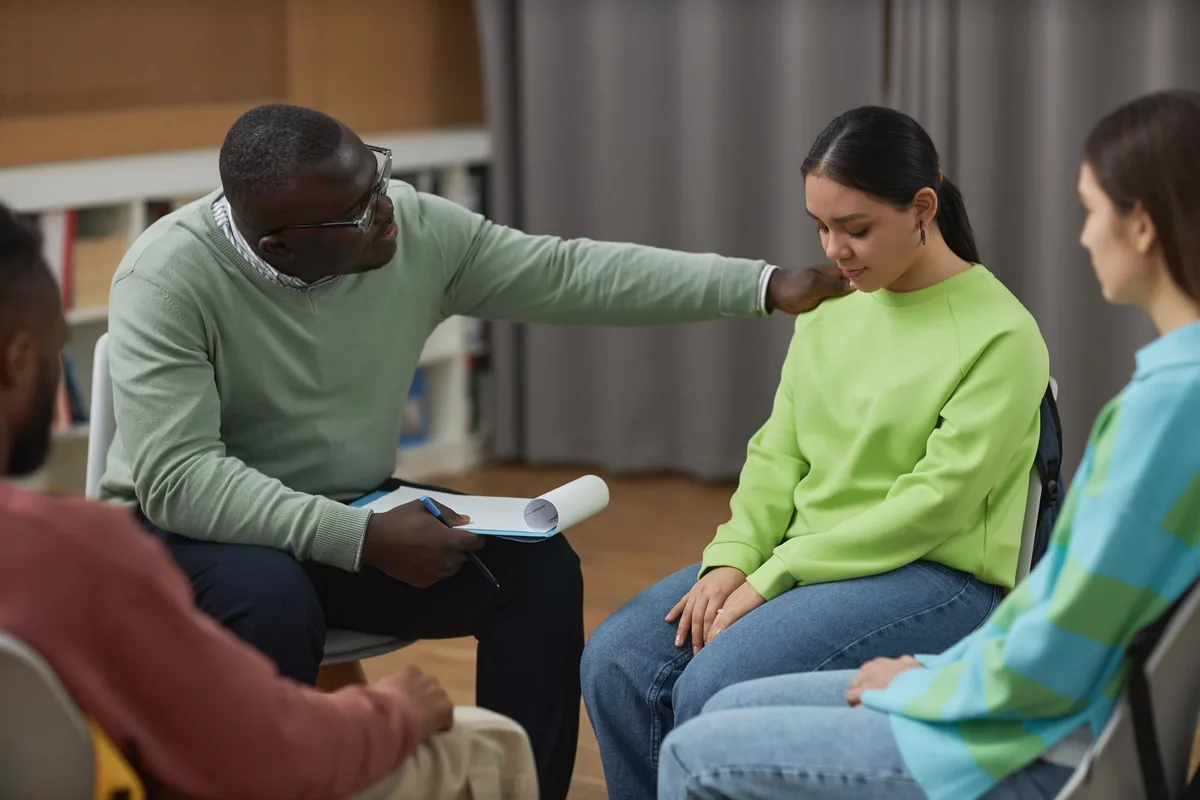24/7 Helpline:
(866) 899-221924/7 Helpline:
(866) 899-2219
Learn more about Cocaine Rehab centers in Pine Prairie
Cocaine Rehab in Other Cities

Other Insurance Options

Choice Care Network

Self-pay options

Carleon

Optum

ComPsych

Multiplan

United Health Care

Regence

Private insurance

Meritain

Anthem

Health Net

Absolute Total Care

WellPoint

Ceridian

Kaiser Permanente

Medical Mutual of Ohio

Horizon Healthcare Service

Aetna

Cigna

Compass Behavioral Center
Compass Behavioral Center is a private rehab located in Mamou, Louisiana. Compass Behavioral Center ...
















Ville Platte Behavioral Health Clinic
Ville Platte Behavioral Health Clinic by Acadiana Area Human Services District provides comprehensiv...











































